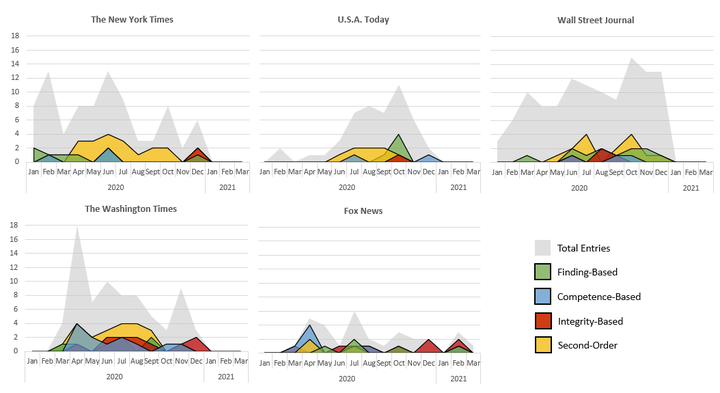Maintenance of Polarized (Dis)Trust--Science Skepticism in Covid-19 Mask Debate
 Trends of Skepticism Usage by News Sources between 2020-2021
Trends of Skepticism Usage by News Sources between 2020-2021
With Michael Sauder and Mario A. Paez-Arellano
Project Description:
There is currently a stark political divide in trust in science in the United States, a divide that emerged in the 1970s and has been growing over time (Gauchat 2012; 2015; maybe check on current state of this). While the origins of this polarization have been debated, there is little empirical work on how trust in scientific insights and scientists became politicized. We know even less about the processes through which this politicization is maintained and revitalized over time. How do people lose trust in institutions? How is this loss of trust sustained over time?
We attempt to develop a better understanding of the answers to these questions by carefully examining a key pathway through which trust is eroded: the promotion of skepticism. Specifically, we analyze how skepticism is expressed in popular news media, concentrating on the different ways in which various media outlets created and perpetuated skepticism about the use of facemasks during the first year of the COVID-19 pandemic. By closely examining how news outlets with different political identities express skepticism in a time of acute scientific uncertainty, we gain focused insight into how skepticism is raised, the different forms skepticism takes, and how skepticism is (in some cases) resolved. While all of our news sources expressed skepticism about scientific experts during this time period, there are striking differences in the frequency, endurance, and nature of skepticism across the political spectrum. These differences in how skepticism is constructed in various media shed light on one important dynamic that contributes to politically polarized trust in science.